
মস্তিষ্কের কোনও অংশে রক্ত প্রবাহ বন্ধ বা কমে গেলে ব্রেইন স্ট্রোক হয়। এর ফলে মস্তিষ্ক পর্যাপ্ত অক্সিজেন এবং পুষ্টি পেতে পারে না। কয়েক মিনিটের মধ্যেই মস্তিষ্কের কোষগুলো মারা যেতে পারে। দ্রুত চিকিৎসা না করা হলে, স্ট্রোক মস্তিষ্ক এবং শরীরের মারাত্মক ক্ষতি করতে পারে।
অনেকে এটিকে মস্তিষ্কের আক্রমণ বা পক্ষাঘাত বলে। কেউ কেউ মনে করেন স্ট্রোক কেবল বয়স্কদের ক্ষেত্রেই ঘটে, তবে এটি তরুণদের ও প্রভাবিত করতে পারে। মাইগ্রেন বা খিঁচুনির মতো অন্যান্য অবস্থা স্ট্রোকের লক্ষণের মতো দেখাতে পারে, তাই এটি নিশ্চিত করার জন্য CT স্ক্যান বা MRI এর মতো সঠিক পরীক্ষা প্রয়োজন।
ব্রেইন স্ট্রোকের দুটি প্রধান ধরন রয়েছেঃ
তৃতীয় প্রকার হল TIA (ক্ষণস্থায়ী ইস্কেমিক আক্রমণ) , যাকে মিনি-স্ট্রোক ও বলা হয়। এটি অল্প সময়ের জন্য স্থায়ী হয় কিন্তু এটি আরও বড় স্ট্রোকের সতর্কতা।
স্ট্রোকের চিকিৎসা নির্ভর করেঃ
একটি সাধারণ ভুল ধারণা হল যে মস্তিষ্কের স্ট্রোক শুধুমাত্র বয়স্ক ব্যক্তিদেরই হয়; স্ট্রোক যেকোনো বয়সে হতে পারে এবং জরুরি চিকিৎসার প্রয়োজন হয়। দ্রুত পদক্ষেপ জীবন বাঁচাতে পারে এবং মস্তিষ্কের ক্ষতি কমাতে পারে।
মস্তিষ্কে রক্ত প্রবাহ রিকোভারি, স্থায়ী ক্ষতি প্রতিরোধ, অক্ষমতা হ্রাস এবং জীবন বাঁচাতে মানুষের ব্রেইন স্ট্রোকের চিকিৎসা প্রয়োজন। দ্রুত চিকিৎসা না করা হলে, এটি ক্ষতি এবং অক্ষমতা সৃষ্টি করতে পারে। দ্রুত চিকিৎসা রিকোভারির সম্ভাবনা উন্নত করে এবং ভবিষ্যতে স্ট্রোকের ঝুঁকি কমায়।
কিছু কারণ স্ট্রোকের ঝুঁকি বাড়ায়, যেমনঃ
ব্রেইন স্ট্রোক প্রায়শই হঠাৎ করে ঘটে এবং লক্ষণগুলো দ্রুত দেখা দেয়। যত তাড়াতাড়ি আপনি লক্ষণ গুলো লক্ষ্য করবেন, ততই ব্যক্তির জীবন বাঁচানোর এবং দীর্ঘমেয়াদি ক্ষতি হ্রাস করার সম্ভাবনা তত বেশি। চিকিৎসায় সামান্য বিলম্বও পক্ষাঘাত বা বাকশক্তি হ্রাসের মতো গুরুতর সমস্যা সৃষ্টি করতে পারে।
স্ট্রোকের লক্ষণ দেখা দিলে তাৎক্ষণিক চিকিৎসা শুরু করা উচিত, কয়েক ঘন্টা পরে নয়, পরের দিনও নয়। স্ট্রোক একটি জরুরি চিকিৎসা ব্যবস্থা এবং প্রতিটি মিনিটই গুরুত্বপূর্ণ। মস্তিষ্ক যত বেশি সময় অক্সিজেন ছাড়া থাকবে, তত বেশি ক্ষতি হবে। দ্রুত পদক্ষেপ নেওয়া ব্যক্তির জীবন বাঁচাতে পারে এবং দীর্ঘমেয়াদি অক্ষমতা রোধ করতে পারে।
চিকিৎসকরা বলছেন যে প্রথম লক্ষণ দেখা দেওয়ার
৪.৫ ঘন্টার মধ্যে স্ট্রোকের ক্ষতি পুনরুজ্জীবিত করার সর্বোত্তম সুযোগ। এই সময়ের মধ্যে, জমাট বাঁধা ইনজেকশন বা জরুরি অস্ত্রোপচারের মতো চিকিৎসা সবচেয়ে ভালো কাজ করে।
লক্ষণগুলো নিজে থেকেই ভালো হয়ে যায় কিনা তা দেখার জন্য কখনও অপেক্ষা করবেন না। মস্তিষ্কের ক্ষতি কমাতে , পক্ষাঘাত বা বাকশক্তি হ্রাস রোধ করতে, ভবিষ্যতে স্ট্রোকের ঝুঁকি কমাতে এবং সম্পূর্ণ সুস্থতার সম্ভাবনা বাড়াতে দ্রুত হাসপাতালে যান।
মস্তিষ্ক যখন প্রয়োজনীয় রক্ত এবং অক্সিজেন পায় না তখন স্ট্রোক হয়। এটি রক্তনালীতে ব্লক বা ফেটে যাওয়ার কারণে হতে পারে। অক্সিজেন ছাড়া, মস্তিষ্কের কোষ গুলো কয়েক মিনিটের মধ্যেই মারা যেতে শুরু করে। এর ফলে শরীরের গুরুতর সমস্যা দেখা দিতে পারে, যা মস্তিষ্কের কোন অংশ প্রভাবিত হয়েছে তার উপর নির্ভর করে।
স্ট্রোকের সময় সাধারণত যা ঘটে তা এখানেঃ
উদাহরণস্বরূপঃ
কিছু স্ট্রোক হালকা এবং কেবল অস্থায়ী দুর্বলতা সৃষ্টি করতে পারে। অন্য গুলো গুরুতর এবং দ্রুত চিকিৎসা না করা হলে স্থায়ী অক্ষমতা, কোমা, এমনকি মৃত্যুও ঘটাতে পারে। সময় অত্যন্ত গুরুত্বপূর্ণ। স্ট্রোকের চিকিৎসা যত দ্রুত করা হয়, মস্তিষ্কের কার্যকারিতা তত বেশি সংরক্ষণ করা যায়।
সুখবর হলো, প্রতিদিনের অভ্যাসে সহজ পরিবর্তন এনে এবং স্বাস্থ্যগত অবস্থার প্রাথমিক ব্যবস্থাপনার মাধ্যমে অনেক স্ট্রোক প্রতিরোধ করা সম্ভব। বিশেষ করে স্ট্রোকের ক্ষেত্রে, যেখানে দ্রুত পদক্ষেপ আপনার জীবন বাঁচাতে পারে, নিরাময়ের চেয়ে প্রতিরোধই ভালো।
ব্রেইন স্ট্রোকের জন্য সেরা প্রতিরোধমূলক ব্যবস্থা গুলো এখানে দেওয়া হলঃ
উচ্চ রক্তচাপ স্ট্রোকের প্রধান কারণ। নিয়মিত পরীক্ষা করুন এবং প্রয়োজনে ওষুধ খান।
খাদ্যাভ্যাস, ব্যায়াম এবং ওষুধের মাধ্যমে রক্তে শর্করার মাত্রা নিয়ন্ত্রণে রাখুন।
কম তৈলাক্ত খাবার এবং বেশি করে ফল ও শাকসবজি খান যাতে আপনার রক্তনালীতে চর্বি জমা কম হয়।
ধূমপান রক্তনালীগুলোকে ক্ষতিগ্রস্ত করে এবং জমাট বাঁধার ঝুঁকি বাড়ায়। ধূমপান ত্যাগ করলে স্ট্রোকের সম্ভাবনা দ্রুত কমে যায়।
শুধুমাত্র পরিমিত পরিমাণে পান করুন। অত্যধিক অ্যালকোহল রক্তচাপ বাড়িয়ে দিতে পারে এবং রক্তনালী গুলোকে দুর্বল করে দিতে পারে।
প্রতিদিন মাত্র ৩০ মিনিট হাঁটা, যোগব্যায়াম, অথবা হালকা নড়াচড়া রক্ত প্রবাহ এবং হৃদপিণ্ডের স্বাস্থ্যের উন্নতি করতে পারে।
লবণ, চিনি এবং চর্বি কম এমন খাবার বেছে নিন। আরও সবুজ শাকসবজি, গোটা শস্য এবং চর্বিহীন প্রোটিন যোগ করুন।
স্থূলতা স্ট্রোকের ঝুঁকি বাড়ায়। এমনকি সামান্য ওজন কমানো ও বড় পার্থক্য আনতে পারে।
অনিয়মিত হৃদস্পন্দন (অ্যাট্রিয়াল ফাইব্রিলেশন) এর মতো অবস্থা জমাট বাঁধতে পারে। নিয়মিত হৃদরোগ পরীক্ষা সাহায্য করে।
দীর্ঘস্থায়ী চাপ রক্তচাপ বাড়াতে পারেঃ শিথিলকরণ, শ্বাস-প্রশ্বাসের ব্যায়াম, অথবা ধ্যান অনুশীলন করুন।
স্ট্রোক থেকে বেঁচে থাকা নির্ভর করে আপনি কত দ্রুত পদক্ষেপ নেন এবং কি ধরনের যত্ন নেন তার উপর। স্ট্রোক একটি জরুরি চিকিৎসা। যত তাড়াতাড়ি আপনি সাহায্য পাবেন, মস্তিষ্কের কার্যকারিতা রক্ষা করার এবং দীর্ঘমেয়াদি ক্ষতি হ্রাস করার সম্ভাবনা তত বেশি।
ব্রেইন স্ট্রোক থেকে বাঁচতে কি কি পদক্ষেপ নিতে হবে তা এখানে দেওয়া হলঃ
F.A.S.T. পরীক্ষাটি ব্যবহার করুনঃ
স্ট্রোকের প্রভাব নির্ভর করে মস্তিষ্কের কতটা ক্ষতি হয়েছে এবং কোন অংশ আক্রান্ত হয়েছে তার উপর। কিছু লোক সম্পূর্ণরূপে সুস্থ হয়ে ওঠে, আবার কেউ কেউ দীর্ঘমেয়াদি সমস্যা নিয়ে বেঁচে থাকতে পারে। দ্রুত পদক্ষেপ নেওয়া এবং প্রাথমিক চিকিৎসা গ্রহণ করলে এই প্রভাবগুলোর তীব্রতা কমানো যেতে পারে।
কিছু প্রভাব সময় এবং পুনর্বাসনের সাথে সাথে উন্নত হয়। অন্য গুলো দীর্ঘস্থায়ী হতে পারে এবং তাদের ক্রমাগত সহায়তার প্রয়োজন হতে পারে। সুখবর হল যে সঠিক থেরাপি এবং উৎসাহের মাধ্যমে মস্তিষ্ক নিরাময় করতে পারে।
স্ট্রোকের পর, অনেক মানুষ নড়াচড়া, ভারসাম্য, কথা বলা বা স্মৃতিশক্তির সমস্যার সম্মুখীন হন। নিয়মিত ব্যায়াম মস্তিষ্ক এবং শরীরকে দ্রুত রিকোভারি করতে সাহায্য করে। রিকোভারির জন্য এই পুনর্বাসন ব্যায়াম গুলো যত তাড়াতাড়ি সম্ভব একজন ডাক্তার বা থেরাপিস্টের নির্দেশনায় শুরু করা উচিত।
স্ট্রোক রিকোভারির জন্য সাধারণ ধরনের ব্যায়াম এখানে দেওয়া হলঃ
এখানে কিছু গুরুত্বপূর্ণ বিষয় মনে রাখা উচিতঃ সর্বদা একজন থেরাপিস্টের নির্দেশনায় ব্যায়াম করুন। ধীরে ধীরে শুরু করুন এবং ধীরে ধীরে তীব্রতা বাড়ান। রিকোভারি প্রক্রিয়ার সময় পারিবারিক সমর্থন এবং অনুপ্রেরণা গুরুত্বপূর্ণ।
প্রাথমিক চিকিৎসা সর্বোত্তম ফলাফল দেয়। যদি আপনি কোনও লক্ষণ লক্ষ্য করেন, তবে তা উপেক্ষা করবেন না। এগুলো প্রোস্টেট সমস্যার প্রাথমিক লক্ষণ হতে পারে এবং সময়মতো রোগ নির্ণয় গুরুতর জটিলতা প্রতিরোধ করতে পারে। পরামর্শের জন্য বাংলা হেলথ্ কানেক্ট আপনাকে অ্যাপোলো হাসপাতালের বিশেষজ্ঞদের সাথে সংযুক্ত করতে পারে।
.png)
স্ট্রোকের চিকিৎসার জন্য ভারত একটি শীর্ষ গন্তব্য। প্রতি বছর, বাংলাদেশ থেকে অনেক পরিবার স্ট্রোকের পর জরুরি, নিরাপদ এবং বিশেষজ্ঞ চিকিৎসার জন্য এখানে আসে।
অনেক বাংলাদেশি রোগী ভারতকে পছন্দ করার মূল কারণ গুলোঃ
ভারতীয় হাসপাতাল গুলোতে স্ট্রোক কেয়ার এবং মস্তিষ্কের অস্ত্রোপচারে দক্ষ শীর্ষস্থানীয় স্নায়ু বিশেষজ্ঞ, নিউরোসার্জন এবং পুনর্বাসন ডাক্তার রয়েছে।
আধুনিক হাসপাতালগুলো একই ছাদের নীচে মস্তিষ্কের স্ক্যান (CT/MRI), জমাট বাঁধা চিকিৎসা, নিউরো ICU যত্ন এবং স্ট্রোক পুনর্বাসন প্রদান করে।
মানের সাথে কোনও আপস না করেই ভারতে স্ট্রোকের চিকিৎসা অন্যান্য অনেক দেশের তুলনায় অনেক বেশি সাশ্রয়ী।
বাংলাদেশি রোগীরা সহজেই ভারতে ভ্রমন করতে পারেন। অনেক হাসপাতালের কর্মীদের দোভাষী থাকে।
স্ট্রোকের চিকিৎসায় সময় অত্যন্ত গুরুত্বপূর্ণ। ভারতীয় হাসপাতাল গুলো মস্তিষ্কের ক্ষতি কমাতে দ্রুত ভর্তি, দ্রুত স্ক্যান এবং প্রাথমিক চিকিৎসা প্রদান করে।
হাজার হাজার বাংলাদেশি রোগী ভারতে সময়মত স্ট্রোকের চিকিৎসা পেয়েছেন এবং উন্নত স্বাস্থ্য এবং গতিশীলতা নিয়ে ফিরে এসেছেন।
ভারত দক্ষ ডাক্তার , উন্নত চিকিৎসার বিকল্প, কম খরচ এবং রোগী-বান্ধব পরিষেবার সঠিক মিশ্রণ প্রদান করে। অন্যান্য দেশের তুলনায়, ভারতে রোগীরা অনেক বেশি সাশ্রয়ী মূল্যে একই মানের চিকিৎসা সেবা পান।
ভারতের শীর্ষস্থানীয় হাসপাতাল গুলোর সাথে যোগাযোগ করতে অথবা সেকেন্ড অপিনিয়ন পেতে আজই বাংলা হেলথ্ কানেক্ট এর সাথে যোগাযোগ করুন।
নিরাপদ এবং বিশেষজ্ঞ স্ট্রোক চিকিৎসার জন্য অনেক বাংলাদেশি রোগী অ্যাপোলো হাসপাতালকে বিশ্বাস করেন। এই হাসপাতাল গুলো একই ছাদের নীচে জরুরি চিকিৎসা, মস্তিষ্কের ইমেজিং, নিউরো ICU যত্ন এবং স্ট্রোক পুনর্বাসন প্রদান করে।
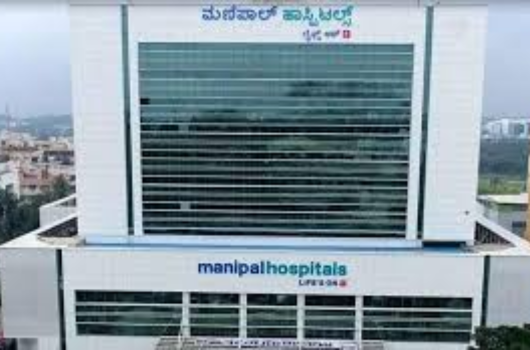

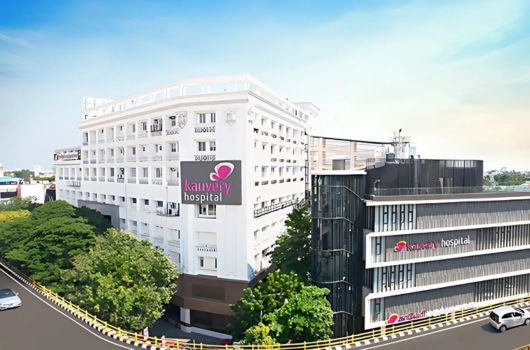

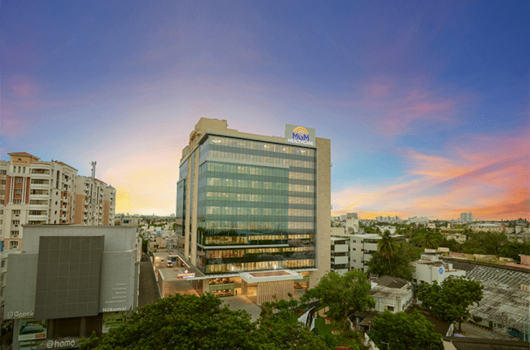


.png)
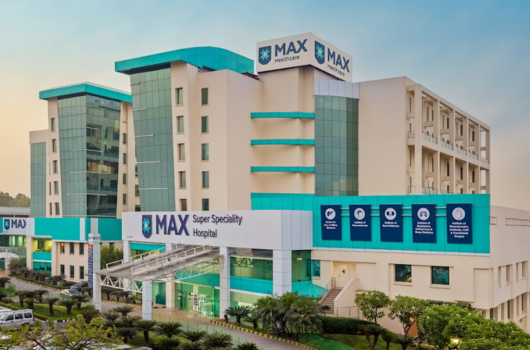
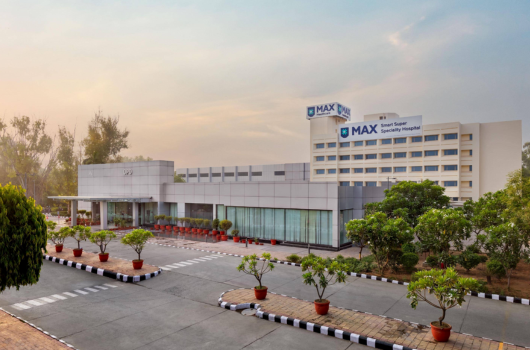
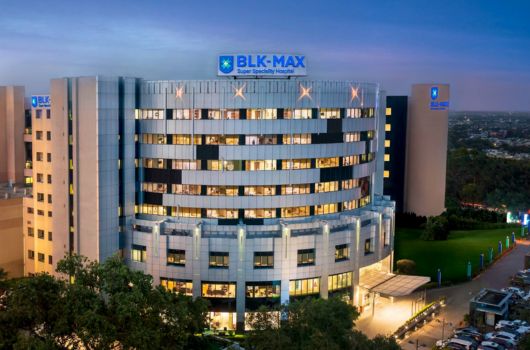
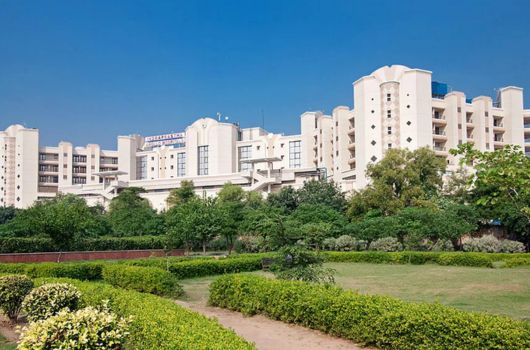

.jpg)

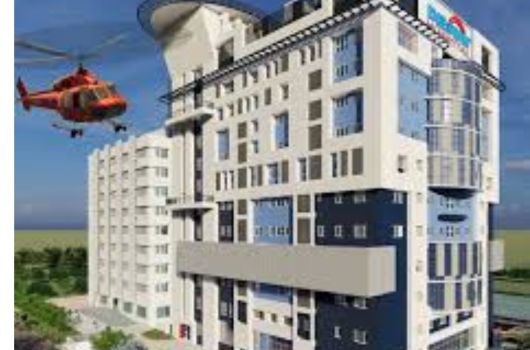
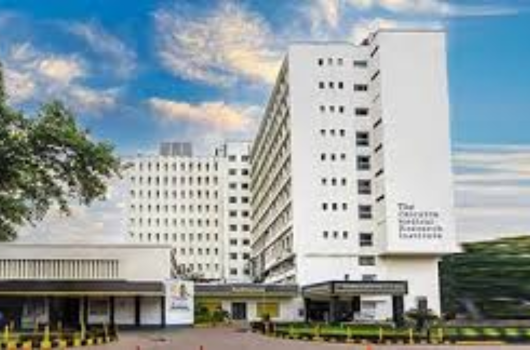
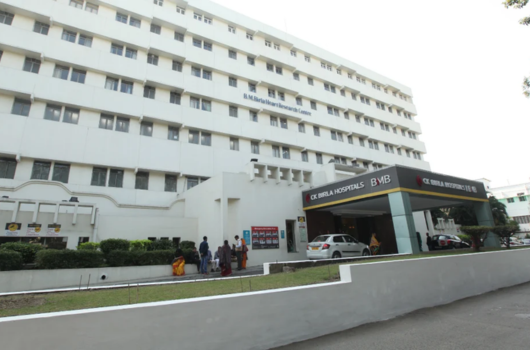

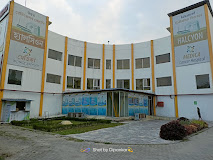
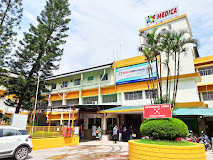
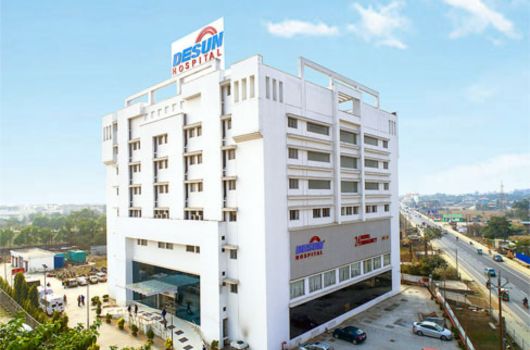


.jpg)


বিশ্বস্ত এবং ব্যাপক মস্তিষ্কের চিকিৎসার জন্য, ভারতের অ্যাপোলো হাসপাতাল অত্যাধুনিক প্রযুক্তি এবং শীর্ষস্থানীয় ক্যান্সার বিশেষজ্ঞদের একটি দল দ্বারা সমর্থিত বিশ্বমানের চিকিৎসা প্রদান করে। এই হাসপাতাল গুলোর প্রতিটি সম্পূর্ণ চিকিৎসা প্রদান করে - রোগ নির্ণয় থেকে শুরু করে অস্ত্রোপচার এবং ফলোআপ পর্যন্ত। অ্যাপোলো আন্তর্জাতিক রোগীদের জন্য ভাষা, ভ্রমন এবং থাকার ক্ষেত্রে সহায়তা সহ সহজে চিকিৎসা সেবা প্রদানের জন্যও পরিচিত।
অন্যান্য অনেক দেশের তুলনায় ভারত অনেক কম খরচে উন্নত স্ট্রোক চিকিৎসা প্রদান করে। ভারতে স্ট্রোকের চিকিৎসার খরচ গড়ে ₹৭০,০০০ থেকে ₹৩,৫০,০০০ (প্রায় $৮৫০ এবং $৪,২০০) পর্যন্ত। চিকিৎসা পদ্ধতি, হাসপাতালের অবস্থান এবং স্ট্রোকের ধরন ইত্যাদি বিভিন্ন কারণের উপর ভিত্তি করে চূড়ান্ত খরচ পরিবর্তিত হতে পারে। চিকিৎসার খরচের বিস্তারিত তালিকা দেখার আগে, এই খরচ গুলোকে সবচেয়ে বেশি প্রভাবিত করে তা বোঝা সহায়ক।
ভারতে স্ট্রোকের চিকিৎসার খরচ কত হবে তা বেশ কিছু কারণের উপর প্রভাব ফেলতে পারে। এর মধ্যে রয়েছেঃ
ভারতে ব্রেইন স্ট্রোকের চিকিৎসার গড় খরচ স্ট্রোকের ধরন, জরুরি অবস্থা এবং জরুরি অবস্থার সময় এবং পরে প্রয়োজনীয় যত্নের স্তরের উপর নির্ভর করে।
Note: India is well known for offering cost-effective neurology treatment. Hospitals combine affordability with strong clinical outcomes, supported by skilled oncologists and the widespread availability of generic medicines.
Note: Thailand’s hospitals are often promoted as premium destinations for international patients. Their higher costs reflect the use of advanced imported medicines, luxury infrastructure, and all-inclusive patient care packages.
দ্রষ্টব্য- তালিকাভুক্ত খরচ আনুমানিক এবং হাসপাতাল, অবস্থান এবং রোগীর চাহিদার উপর নির্ভর করে পরিবর্তিত হতে পারে। সঠিক এবং আপডেট তথ্যের জন্য স্বাস্থ্যসেবা প্রদানকারীর সাথে পরামর্শ করুন।
উপরের সারণীতে মুদ্রা রূপান্তর হারগুলো ২০২৫ সালের জুন মাসের তথ্যের উপর ভিত্তি করে তৈরি।
চিকিৎসার খরচ সম্পর্কে বিস্তারিত তথ্য এবং আরও তথ্যের জন্য, আপনি ভারতের অ্যাপোলো হাসপাতালে চিকিৎসার খরচ জানতে বাংলা হেলথ্ কানেক্ট এর সাথে যোগাযোগ করতে পারেন।
স্ট্রোক চিকিৎসায় সাফল্যের অর্থ হল মস্তিষ্কের কার্যকারিতা রক্ষা করা, বড় ধরনের অক্ষমতা এড়ানো এবং রোগীকে স্বাভাবিক বা স্বাধীন জীবনে ফিরে যেতে সাহায্য করা।
সাফল্য বলতে কি বোঝায়?
যদি স্ট্রোকের চিকিৎসা শুরুতেই করা হয় (গোল্ডেন আওয়ারের মধ্যে), তাহলে অনেক রোগীই দ্রুত আরোগ্য লাভ করেন। পুনর্বাসন এবং জীবনযাত্রার পরিবর্তন সময়ের সাথে সাথে ফলাফলকে আরও উন্নত করে।
অ্যাপোলো হাসপাতাল হাজার হাজার স্ট্রোক রোগীর সফল চিকিৎসা করেছে, যার মধ্যে অনেকেই বাংলাদেশ থেকে এসেছেন। তারা নিম্নলিখিত বিষয় গুলোর জন্য বিশ্বস্তঃ
মাত্র ২৪ ঘন্টার মধ্যে চারজন স্ট্রোক রোগীর উপর উন্নত যান্ত্রিক থ্রম্বেক্টমি করে অ্যাপোলো হাসপাতাল একটি বড় সাফল্য অর্জন করেছে , যার ফলে ফলাফলে উল্লেখযোগ্য উন্নতি হয়েছে। পূর্বে, স্ট্রোকের ৪.৫ ঘন্টার মধ্যে থ্রম্বেক্টমি করতে হত এবং মাত্র ৩০ থেকে ৪০% সাফল্যের হার দেখা যেত। কিন্তু এই উন্নত কৌশলের সাহায্যে , ডাক্তাররা এখন স্ট্রোকের ২৪ ঘন্টা পরেও রোগীদের চিকিৎসা করতে পারেন , বিশেষ করে বড় জমাট বাঁধা রোগীদের ক্ষেত্রে রক্ত প্রবাহ রিকোভারিতে অনেক বেশি সাফল্য অর্জন করতে পারেন।

চেন্নাইয়ের গ্রীমস রোডে অবস্থিত অ্যাপোলো হাসপাতালের সিনিয়র নিউরোলজিস্ট ডাঃ ভিএল আরুল সেলভান তার বিস্তৃত অভিজ্ঞতার ভিত্তিতে স্ট্রোকের চিকিৎসা সম্পর্কে গুরুত্বপূর্ণ অন্তর্দৃষ্টি শেয়ার করেছেন। তিনি স্ট্রোকের প্রাথমিক লক্ষণগুলো কিভাবে চিহ্নিত করবেন , ধূমপানের প্রভাব একটি প্রধান ঝুঁকির কারণ এবং স্ট্রোকের পরে পক্ষাঘাতের সাধারণ কারণ গুলো কিভাবে চিহ্নিত করবেন তা ব্যাখ্যা করেছেন। ডাঃ সেলভান স্ট্রোক থেকে পুনরুদ্ধারের যাত্রা সম্পর্কেও আলোচনা করেছেন , যার মধ্যে রয়েছে শরীরের নড়াচড়া রিকোভারি, মাসপেশীর সংকোচন (স্প্যাস্টিসিটি) কমানো এবং খিঁচুনি নিয়ন্ত্রণ। তিনি শরীরের কোন অংশ গুলো সাধারণত স্ট্রোকে আক্রান্ত হয় এবং কিভাবে সময় মতো চিকিৎসা ফলাফলকে উল্লেখযোগ্যভাবে উন্নত করতে পারে তা তুলে ধরেন।
অ্যাপোলো হাসপাতাল ২৪/৭ স্ট্রোক-প্রস্তুত জরুরি সেবা, বিশেষজ্ঞ স্নায়ু বিশেষজ্ঞ এবং অত্যাধুনিক ইমেজিং এবং পুনর্বাসন পরিষেবা সহ উন্নত ব্রেইন স্ট্রোক চিকিৎসা প্রদান করে।
বাংলা হেলথ্ কানেক্ট বাংলাদেশি রোগীদের ভারতে ব্রেইন স্ট্রোকের চিকিৎসার জন্য নিরাপদ, সময়োপযোগী এবং বিশেষজ্ঞ সেবা পেতে সাহায্য করে। আমাদের টিম অ্যাপোলো হাসপাতালের সাথে ঘনিষ্ঠভাবে কাজ করে আপনার চিকিৎসা যাত্রার প্রতিটি ধাপ মসৃণ এবং চাপ মুক্ত করতে।
বাংলা হেলথ্ কানেক্ট এই প্রক্রিয়াটিকে সহজ এবং সহায়ক করে তোলে, ভ্রমন ব্যবস্থা থেকে শুরু করে চলমান চিকিৎসা নির্দেশনা পর্যন্ত, যাতে বাংলাদেশি রোগীদের মানসিক শান্তির সাথে উচ্চমানের চিকিৎসা সেবা নিশ্চিত করা যায়। ৬০,০০০ এরও বেশি বাংলাদেশি রোগীর সহায়তায়, বাংলা হেলথ্ কানেক্ট স্পষ্টতা, যত্ন এবং ব্যক্তিগত সহায়তার মাধ্যমে দৃঢ় আস্থা তৈরি করেছে।
বিশ্বস্ত সহায়তার মাধ্যমে আপনার চিকিৎসা যাত্রা শুরু করতে আজই বাংলা হেলথ্ কানেক্ট এর সাথে যোগাযোগ করুন।
দ্রষ্টব্যঃ বাংলা হেলথ্ কানেক্ট কোনও ধরনের চিকিৎসা পরামর্শ প্রদান করে না।
✅ আপনার রিপোর্ট শেয়ার করুন
✅ অ্যাপোলো হাসপাতাল থেকে চিকিৎসা পরিকল্পনা পান
✅ আপনার জন্য উপযুক্ত একটি বেছে নিন
✅ বাকি কাজ আমাদের ওপর ছেড়ে দিন
মস্তিষ্কে রক্ত প্রবাহ বন্ধ হয়ে গেলে বা রক্তনালী ফেটে গেলে ব্রেইন স্ট্রোক হয়। এটি একটি জরুরি চিকিৎসা ব্যবস্থা যা দ্রুত চিকিৎসা না করালে মস্তিষ্কের ক্ষতি, পক্ষাঘাত বা মৃত্যু হতে পারে।
বাংলা হেলথ্ কানেক্ট বাংলাদেশি রোগীদের অ্যাপোলো হাসপাতালের শীর্ষস্থানীয় নিউরোলজিস্টদের সাথে অ্যাপয়েন্টমেন্ট বুক করতে, মেডিকেল ভিসার ব্যবস্থা করতে এবং রোগ নির্ণয় থেকে পুনর্বাসন পর্যন্ত সম্পূর্ণ চিকিৎসা যাত্রা পরিচালনা করতে সহায়তা করে।
চেন্নাই, দিল্লি, হায়দ্রাবাদ, মুম্বাই, আহমেদাবাদ এবং কলকাতার অ্যাপোলো হাসপাতাল গুলো সেরা পছন্দ গুলোর মধ্যে একটি। তারা উন্নত স্ট্রোক যত্ন প্রদান করে, যার মধ্যে রয়েছে যান্ত্রিক থ্রম্বেক্টমি, নিউরো ICU এবং স্ট্রোক-পরবর্তী পুনর্বাসন।
সর্বোত্তম ফলাফলের জন্য লক্ষণ দেখা দেওয়ার ৪.৫ ঘন্টার মধ্যে চিকিৎসা শুরু করা উচিত। তবে, মেকানিক্যাল থ্রম্বেক্টমির মতো নতুন চিকিৎসা স্ট্রোকের ২৪ ঘন্টা পরেও করা যেতে পারে।
হ্যাঁ। বাংলা হেলথ্ কানেক্ট রোগীদের এবং পরিবারের জন্য ভ্রমন নিরাপদ এবং সহজ করার জন্য ভারতে মেডিকেল ভিসা চিঠি , ফ্লাইট পরিকল্পনা, এমনকি বিনামূল্যে বিমানবন্দর থেকে পিকআপের ক্ষেত্রে সহায়তা করে।
খরচ নির্ভর করে প্রয়োজনীয় চিকিৎসার উপর, যেমন জরুরি সেবা, স্ক্যান, সার্জারি, অথবা পুনর্বাসন। বাংলা হেলথ্ কানেক্ট অ্যাপোলো হাসপাতালের জন্য স্পষ্ট, কোনও লুকানো ফি ছাড়াই খরচের অনুমান প্রদান করে।
হ্যাঁ। বাংলা হেলথ্ কানেক্ট ভারতীয় স্ট্রোক বিশেষজ্ঞদের সাথে অনলাইনে ফলো-আপ পরামর্শের ব্যবস্থা করতে সাহায্য করে যাতে বাড়ি থেকে অব্যাহত আরোগ্য এবং যত্ন নিশ্চিত করা যায়।

